Realizing Children’s Rights in The Bahamas
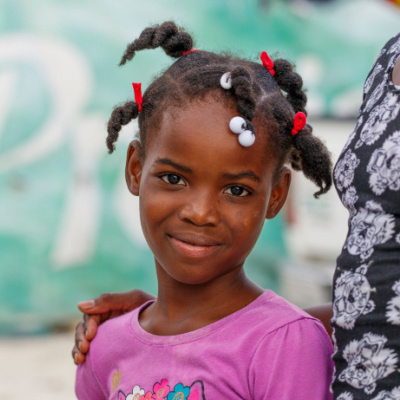
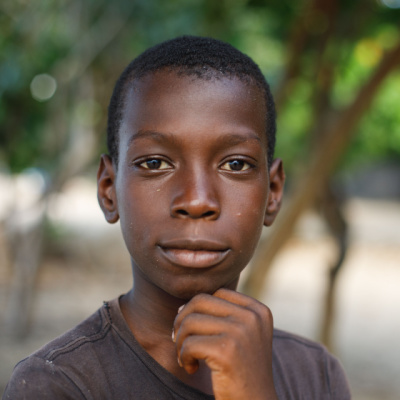
An archipelago nation of more than 700 islands, The Bahamas covers 100,000 square miles along the edge of the Caribbean Sea and Atlantic Ocean. The Bahamas gained its independence from the British in 1973 but remains part of the Commonwealth. The State has been widely criticised for its policies and treatment of Haitian refugees in recent years, as well as for its juvenile justice system which does not consider the best interest of the child in breach of the CRC. Child marriage and child abuse remain two of the most concerning issues in the country, stemming from poverty.

Children’s Rights Index: 8,44 / 10
Yellow level: Satisfactory situation
Population: 396,914
Pop. ages 0-14: 21 %
Life expectancy: 74 years
Under-5 mortality rate: 12 ‰
The Bahamas at a glance
The Commonwealth of The Bahamas, commonly known as The Bahamas, is a country within the Lucayan Archipelago of the West Indies in the Atlantic. It is located north of Cuba and northwest of the island of Hispaniola (split between Haiti and the Dominican Republic) and the Turks and Caicos Islands, southeast of the US state of Florida, and east of the Florida Keys. About a fifth (21 percent) of its population is composed of children under the age of fourteen (World Bank, 2022).
In spite of the concentration of the population in urban centres (especially Nassau and Freeport) that are devoted to tourism, the traditional pattern of small farming and fishing prevails in some villages, notably in the southeastern islands. The Bahamas has a predominantly market economy that is heavily dependent on tourism and international financial services.
The gross national product (GNP) per capita is one of the highest in the region (Britannica, 2022) and its GDP has risen steadily over the past three decades, with annual growth averaging 1.4 percent. Nonetheless, the country’s economic position remains vulnerable due to its small size, lack of economic diversification and vulnerability to natural disasters (World Bank, 2020).
While the islands remain part of the Commonwealth, proposed reforms to create a presidential democracy have been a persistent feature of national politics. The State has been widely criticized for its policies towards, and treatment of Haitian refugees in recent years, as well as the inadequacy of the juvenile justice system (CRIN, 2022).
Status of children rights [1]
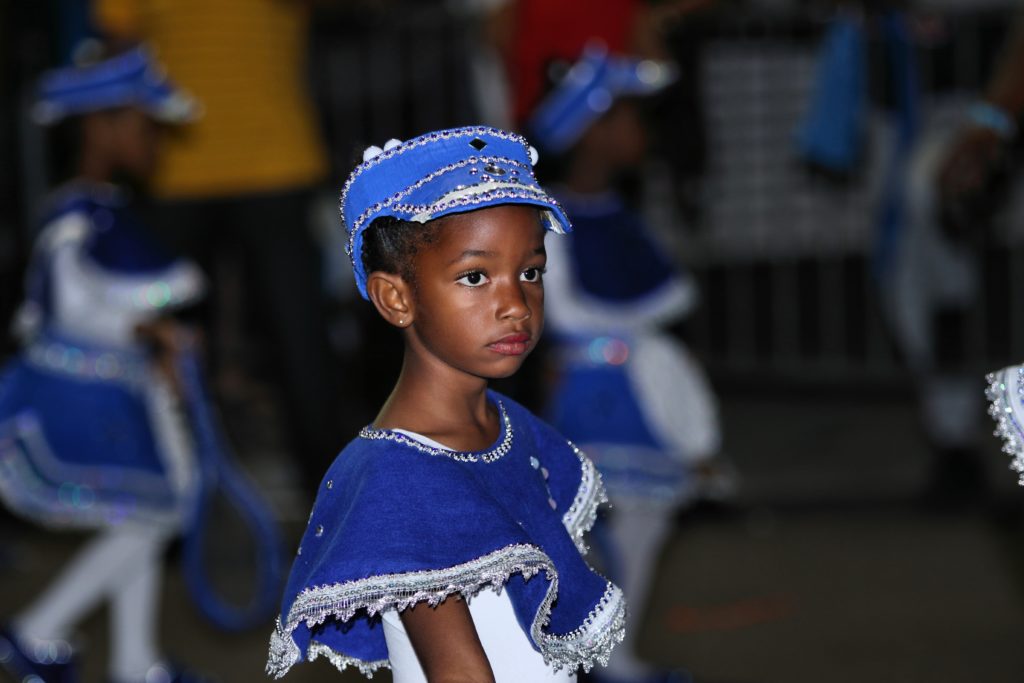
The Bahamas ratified the Convention on the Rights of the Child (CRC) on 30 October 1991 (OHCHR, 2022). The Bahamas has also ratified key international treaties aiming to protect the wellbeing of children and safeguard their rights, such as the Optional Protocols to the Convention on the Rights of the Child on the involvement of children in armed conflict and on the sale of children child prostitution and child pornography, both of them ratified on the 28 September 2015.
The Bahamas has also ratified the Convention on the Elimination of All Forms of Discrimination Against Women (CEDAW) in 1993 as well as the Convention on the Rights of Persons with Disabilities (CRPD) in 2013 (OHCHR, 2022).
However, The Bahamas has not yet ratified the Optional Protocol Communication Procedure (OPCP) which recognizes that children have the right to appeal to an international mechanism specific to them, when national mechanisms fail to address violations effectively (Save the Children, 2012).
The Optional Protocols are optional because the obligations may be more demanding than those provided by the CRC and originally accepted by the ratifying states. This is the reason why States must also ratify the Optional Protocols if they want to be bound by them. Optional Protocols are treaties in their own right and are open to signature, ratification or accession.
Moreover, The Bahamas is a member of the Organization of American States (OAS) and therefore it is bound to the Inter-American System of Human Rights. The Bahamas ratified (with reservations) the Inter-American Convention on the Prevention, Punishment, and Eradication of Violence against Women (known as the Belém do Pará Convention) in 1995 (Girlsnotbrides, 2022).
Nationally, The Bahamas has enacted various legislation that addresses issues relating to family and children. These include the Constitution; the Status of Children Act, the Inheritance Act, and The Married Women’s Property Act, The Adoption of Children Act, the Child Protection Act and the Domestic Violence (Protection Orders) Act. For instance, the Constitution of The Bahamas guarantees the protection of fundamental rights and freedoms of the individual.
This is outlined in Article 15 and includes for example protection of the right to life, protection from inhuman treatment, protection from slavery and forced labour, provision to secure protection of law, protection for privacy of home and other property and protection from discrimination on the grounds of race (OAS Family, 2022).
In addition to these various legislations, the Children and Family Services Division of the Department of Social Services seeks to ensure that all children in The Bahamas have a physically safe environment with the emotional support and security necessary for healthy growth and development. The division consists of four separate units: Child Protection Services Unit, Child Care Facilities Unit, Child Placement Unit and Family Service Unit(OAS Family, 2022).
Addressing the needs of children
Right to education
The quality of education in The Bahamas has been improving since the late 1950s. As The Bahamas has grown its economy and infrastructure, its education systems have also grown to match (The Borgen Project, 2021).
The Education Act, which was revised in 1996, is the primary education law governing The Bahamas today. It guarantees free education for all residents between five and sixteen years of age. In 2014, The Bahamas introduced the National High School Diploma, to create a standard for minimum basic education for every child. This was a significant step in improving the education system by ensuring equal education for all children (The Borgen Project, 2021).
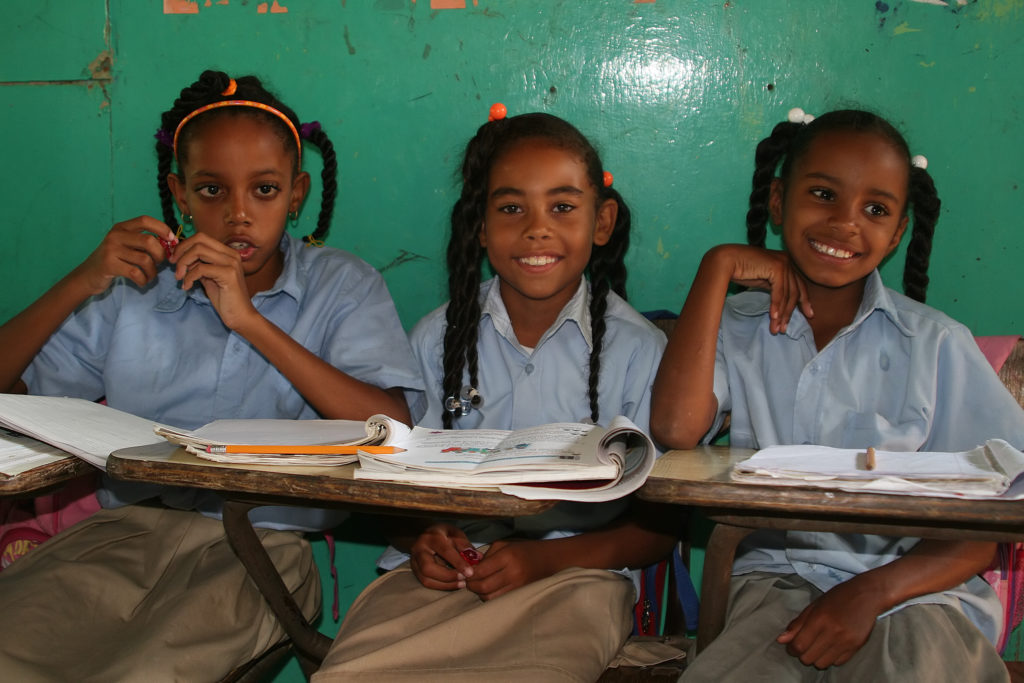
About 75 percent of children attend public primary schools, but most nurseries and pre-schools are run by churches. There are 170 educational institutions in The Bahamas, which is a large number considering the population of the archipelago. In the nation, over 100 percent of children received primary education in 2006 and this trend has been continuing into the present. In 2003, the literacy rate for adults ages 15 and over was 95.5 percent. This percentage was even higher for young adults aged 15 to 24 (The Borgen Project, 2017).
Right to identity
The right to identity is crucial for each human being as it guarantees a legal status, states the recognition of family and sociocultural ties which characterize the individual, and promotes the enjoyment of human rights. In this increasingly globalized world, with hundreds of millions of people living outside the country of their birth, and States guarding their sovereign right to control membership ever more closely, the number of children without secure citizenship status is on the rise.
In The Bahamas, this issue is particularly relevant for children born to Haitian parents without status (Belton, 2010), so-called “Arendt’s Children” (Bhabha, 2009). Although no official count of the number of Bahamian-born children of parents without status exists, tens of thousands of undocumented Haitians are estimated to live in The Bahamas (Smith, 2008), making this group a potentially important percentage of the Bahamian population. According to Kristy A. Belton, The Bahamas fails to consider adequately the best interests of the Bahamian-born non-citizen child in its laws and policies (Belton, 2010), in contravention to the CRC.
Right to protection
Despite The Bahamas ratifying the CRC, it has not incorporated it into national law, meaning that the rights granted by the Convention cannot be relied on in court. However, the Child Protection Act 2007 was specifically guided and influenced by the CRC.
In fact, Section 4(c) of this Act provides that children have the right “to exercise, in addition to all the rights stated in this Act, all the rights set out in the [CRC] subject to any reservations that apply to The Bahamas and with appropriate modifications to suit the circumstances that exist in The Bahamas with due regard to its law” (CRIN, 2015). Moreover, it is not possible to bring a case for violation of children’s rights without naming a specific victim.
Children can bring civil lawsuits in domestic courts to challenge violations of their rights. However, according to the Supreme Court Rules, they are considered in law “person[s] under a disability” and must therefore make claims through a “next friend” or “guardian ad litem” (CRIN, 2015).
A child is also unable to defend, make a counterclaim, intervene, or appear in any proceedings without a “guardian ad litem” who must then act through an attorney to bring or defend a case (CRIN, 2015). The Child Protection Act makes an exception for proceedings in relation to contract law matters, in which a child has the right to and may pursue legal proceedings to recover any sum of money which may be due to him in the same manner as if he were of full age (CRIN, 2015).
A serious obstacle to accessing justice in the country is the lack of any state legal aid program. Few organizations provide free legal services, and the costs of legal proceedings are prohibitively expensive for the average person. In line with the Child Protection Act, the age of criminal liability in The Bahamas is 10 years and older, which is relatively very low. The Criminal Procedure Code of The Bahamas does not make any special provision for complaints made by children or for private prosecutions to be conducted on behalf of children (CRIN, 2015).
Risk factors → Country-specific challenges
Poverty
Children under 14 have the highest poverty rate in The Bahamas. In fact, more than 40,000 persons in the country live under the poverty line on less than $5,000 per year (Pratt, 2019) which amounts to 12.8 percent of the total population. Most of them are located in urban areas (83 percent vs 17 percent of people located in rural areas) (World Bank, 2022).
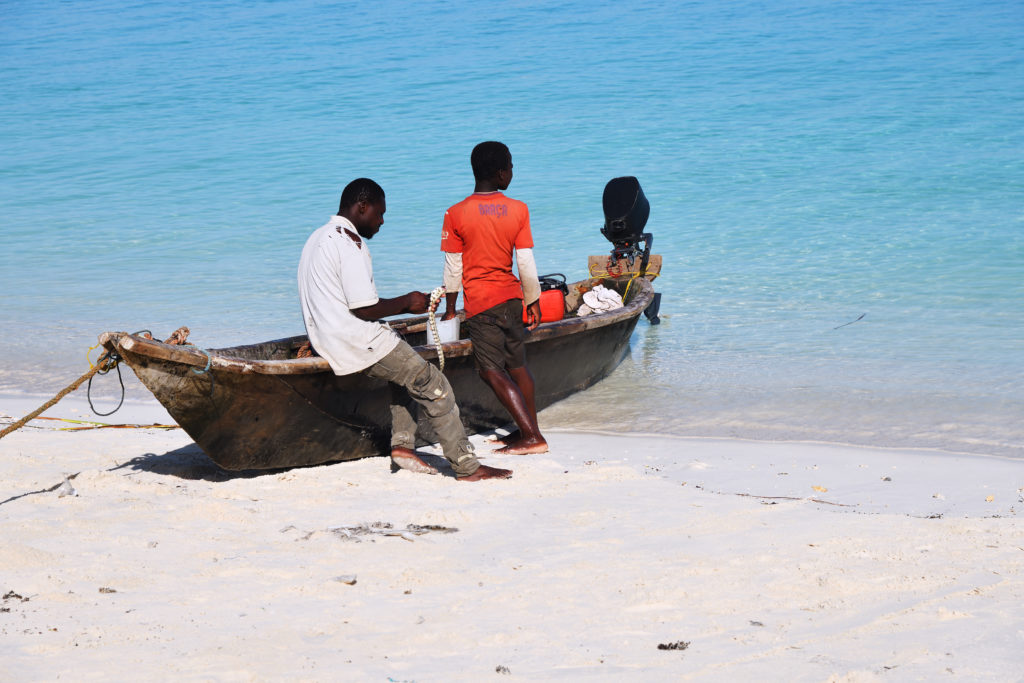
Even if its GDP has risen steadily over the past 3 decades, with annual growth averaging 1.4 percent, the country’s economic position remains vulnerable due to its small size, lack of economic diversification and vulnerability to natural disasters. The high dependency on financial services and foreign investment, especially related to tourism, contributes to the economic vulnerability of the country. (World Bank report, 2020). Without access to resources and basic needs, children’s wellbeing and development will be adversely affected.
Child abuse
Child abuse cases in The Bahamas have seen a sharp increase over the years. According to the Minister of Social Services, Frankie Campbell, 2,442 cases of child abuse were reported between 2015 and 2018: among them, there were 562 cases of physical abuse, 600 cases of sexual abuse, 1,070 cases of neglect, 53 cases of abandonment, 96 cases of incest, 30 cases of verbal abuse and 31 cases of emotional abuse (The Nassau Guardian, 2021).
According to the Department of Social Services, in 2020, the numbers of cases reported were: 22 physical abuse, 11 sexual abuse, and 26 cases of neglect, whereas in 2021, there were 34 cases of physical abuse, 16 sexual abuse, and 39 cases of child neglect. In the first four months of 2022, the reported cases include one case of abandonment, 32 physical cases of abuse, 14 sexual cases of abuse, and 41 cases of neglect. These numbers demonstrate the alarming reality of child abuse.
The Children and Family Services Unit of the Department of Social Services is the primary section with direct intervention in child maltreatment matters including sexual abuse. All cases are investigated by this department once the matter comes to its attention.
First, the caseworker interviews the child after which the non-abusing parent is interviewed. If there is no danger to the child he/she remains at home and the matter is reported to the Police. In some cases, the child may be taken to the hospital. The situation continues to be monitored until the child is no longer at risk. The objective is to ensure that matters related to the maltreatment of children are properly addressed to ensure the wellbeing of children (OAS Protection, 2022).
In regard to providing a service beyond office hours to children who may be at risk for abuse, abandonment or neglect, the Department of Social Services established the National Hotline for Child Abuse. This step was taken to ensure children are in a safe, stable, and nurturing environment that is free from violence of any kind (Ewnews, 2022).
Child marriage
Historically speaking, child marriage was used as an expedient moral and legal tool in society. Morally and legally, if a young girl became pregnant, the man could escape criminal liability by marrying her. This legitimized many carnal knowledge crimes. Poverty played a key role in the rise of child marriages. Families with several children would try to reduce the numbers, by marrying off their girls.
Females would come under the husband’s control and it would be his responsibility to feed and provide for her. For the wealthy in Europe, Asia and Africa, early marriage sealed political and economic bargains and alliances (Bahamianology, 2022). The history of child marriage has its roots in socio-political and economic considerations; nevertheless, child marriage remains a present issue in The Bahamas.
The main drivers of Child, Early, and Forced Marriage and Unions (CEFMU) are represented by gender inequality and the belief that women and girls are somehow inferior to men and boys, even if there is very limited information on CEFMU in The Bahamas (Girlsnotbrides, 2022).
Linked to these drivers, in line with the international, regional and national standpoints, The Bahamas has committed to eliminating child, early and forced marriage by 2030 in accordance with target 5.3 of the Sustainable Development Goals (SDGs). However, during its 2018 Voluntary National Review at the High-Level Political Forum (the mechanism through which countries report their progress on the SDGs) the government did not report on progress made against target 5.3.
By ratifying the CRC in 1991, The Bahamas set a minimum age of marriage of 18 and by ratifying the Convention on the Elimination of All Forms of Discrimination Against Women (CEDAW) in 1993, the state accepted to ensure free and full consent to marriage. However, in 2018, the CEDAW Committee expressed concerns that the Marriage Act provides for a minimum marriage age of 15 years and allows exceptions for individuals as young as 13 to 15 years of age to be married. The Committee recommended The Bahamas to enforce the minimum age of marriage of 18 years in law and practice, without exception (Girlsnotbrides, 2022).
Under the Inter-American System of Human Rights, The Bahamas is bound to strengthen the response to address gender-based violence and discrimination, including early, forced and child marriage and unions from a perspective that respected evolving capacities and progressive autonomy. Under the Marriage Statute Law of The Bahamas 1976, the legal minimum age for marriage is 18 years.
However, those under the age of 18 can be married with parental consent, and those who are 15 years but not less than 13 can be married with a grant dispensation from the Supreme Court “upon good cause shown” (Girlsnotbrides, 2022). Countries can do more to stop child marriage by establishing better legal protections and removing exceptions to the legal age of marriage (Kavell, 2016).
Written by Arianna Braga
Internally proofread by Aditi Partha
Last updated on 1 October 2022
References:
Bahamianology (2022). 1946 Child Marriage Still Legal in Bahamas Two Decades After Change in Britain. Retrieved from https://bahamianology.com/1946-child-marriage-still-legal-in-bahamas-two-decades-after-change-in-britain/, accessed on 30 September 2022.
Belton, K. A. (2010). Arendt’s children in the Bahamian context: The children of migrants without status. The International Journal of Bahamian Studies, 16, 35- 50. Retrieved from https://doi.org/10.15362/ijbs.v16i0.127, accessed on 30 September 2022.
Bhabha, J. (2009). Arendt’s children: Do today’s migrant children have a right to have rights? Human Rights Quarterly, 31, 410-451. Retrieved from https://www.corteidh.or.cr/tablas/r22419.pdf, accessed on 30 September 2022.
Britannica (2022). The Bahamas Country Profile. Retrieved from https://www.britannica.com/place/The-Bahamas, accessed on 25 September 2022.
CRIN (2015). Access to Justice for Children: Bahamas. Retrieved from https://archive.crin.org/en/library/publications/bahamas-access-justice-children.html, accessed on 30 September 2022.
CRIN (2022). Bahamas. Retrieved from https://archive.crin.org/en/library/countries/bahamas.html, accessed on 30 September 2022.
Ewnews (2022). GB child abuse cases on track to outpace last year’s stats. Retrieved from https://ewnews.com/gb-child-abuse-cases-on-track-to-outpace-last-years-stats, accessed on 30 September 2022.
Freedom House (2022). The Bahamas Country Profile. Retrieved from https://freedomhouse.org/country/bahamas, accessed on 25 September 2022.
Girlsnotbrides (2022). Bahamas country page. Retrieved from https://www.girlsnotbrides.org/learning-resources/child-marriage-atlas/regions-and-countries/bahamas/#:~:text=Under%20the%20Marriage%20Statute%20Law,upon%20good%20cause%20shown%E2%80%9D.., accessed on 30 September 2022.
Kavell J. (2016). Child marriage in the Caribbean: My Nani’s story. Retrieved from https://blogs.worldbank.org/voices/child-marriage-caribbean-my-nani-s-story, accessed on 30 September 2022.
OAS Family (2022). Overview of the regulation of family and minors in the Bahamas. Retrieved from https://www.oas.org/dil/Overview_of_the_regulation_of_family_and_minors_in_the_Bahamas.pdf, accessed on 30 September 2022.
OAS Protection (2022). Protection against abuse, including sexual abuse, of minors in The Bahamas. Retrieved from https://www.oas.org/dil/Protection_against_abuse_including_sexual_abuse_of_minors_in_The_Bahamas.pdf, accessed on 30 September 2022
OHCRC (2022). Retrieved from https://tbinternet.ohchr.org/_layouts/15/TreatyBodyExternal/Treaty.aspx?Treaty=CRC&Lang=en, accessed on 30 September 2022.
Pratt A. (2019), Poverty in The Bahamas. Retrieved from http://www.tribune242.com/news/2019/oct/16/poverty-bahamas/, accessed on 30 September 2022.
Save the Children (2012). Optional Protocol to the Convention on the Rights of the Child on a Communications Procedure. Retrieved from https://resourcecentre.savethechildren.net/document/optional-protocol-convention-rights-child-communications-procedure/#:~:text=The%20Optional%20Protocol%20on%20a,fail%20to%20address%20violations%20effectively, accessed on 30 September 2022.
Smith, L. (2008). Migration report: Time for a rational, non-partisan Haitian policy. Bahama Pundit. Retrieved from http://www.bahamapundit.com/2008/08/mikgrat ion-repo.html, accessed on 30 September 2022.
The Borgen Project (2017). Education in The Bahamas. Retrieved from https://borgenproject.org/education-in-the-bahamas/, accessed on 30 Septemeber 2022.
The Borgen Project (2021). Child Poverty in The Bahamas. Retrieved from https://borgenproject.org/child-poverty-in-the-bahamas/#:~:text=Child%20Poverty%20Rates&text=Studies%20found%20that%2012.5%25%20of,poverty%20rate%20in%20the%20country, accessed on 25 September 2022.
The Nassau Guardian (2021). At least 382 incidents of child abuse reported between Jan. 2020 and Feb. 2021. Retrieved from https://thenassauguardian.com/at-least-382-incidents-of-child-abuse-reported-between-jan-2020-and-feb-2021/, accessed on 30 September 2022
World Bank (2020). The Bahamas Overview. Retrieved from World Bank at https://pubdocs.worldbank.org/en/505961602705115630/mpo-bhs.pdf, accessed on 25 September 2022.
World Bank (2022). The Bahamas Overview. Retrieved from World Bank at https://data.worldbank.org/country/BS, accessed on 25 September 2022.
World Bank Report (2020). The Bahamas, retrieved from https://pubdocs.worldbank.org/en/505961602705115630/mpo-bhs.pdf, accessed on 30 September 2022.
[1] This article by no means purports to give a full or representative account of children’s rights in The Bahamas; indeed, one of the many challenges is the scant updated information on Bahamian children, much of which is unreliable, not representative, outdated or simply non-existent.

